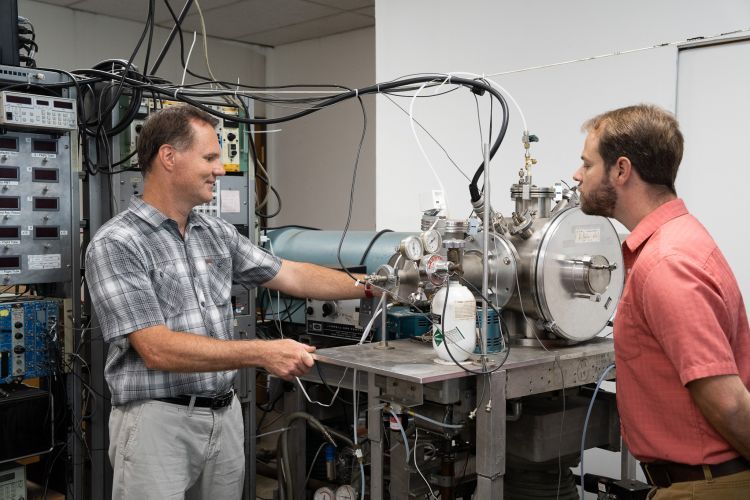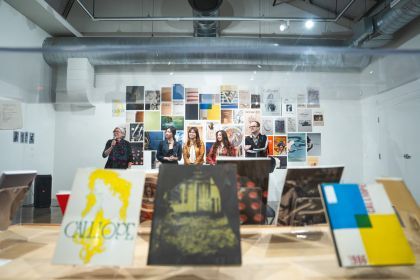Breadcrumb
Chemistry professors and students research unlocks molecular mysteries

(L-R) Professor Balint Sztaray and Associate Professor Tony Dutoi
University of the Pacific Professor of Chemistry Balint Sztaray and Associate Professor Tony Dutoi have been attempting to better understand how and why molecules break apart in unconventional ways.
Their research, funded by a three-year $525,000 grant from the National Science Foundation, has the potential for far-reaching future applications.
In 2021, about 25 percent of nearly 44,000 proposals received funding. In the National Science Foundation’s Division of Chemistry, just 29% of grants are for more than $500,000.
What they are studying
“Chemistry is divided into two big fields. Synthetic chemists try to figure out how to make atoms go together in ways they haven't before, and then there's another group who try to see how molecules break apart. Balint and I are on the breaking side,” Dutoi explained.
Chemists once believed atoms always traveled clear lowest-energy pathways when put into motion, similar to hiking through a valley instead of going over a mountain but now know not all atoms follow that convention. For instance, they can roam around on broad higher-lying “plateaus,” or (due to momentum) follow a trail that lies directly ahead even if it leads to higher ground (energy).
Using experiments (Sztaray) and theoretical simulations (Dutoi) they will study atoms that do not follow those typical paths.
The research will help scientists better understand fundamental knowledge of molecules, building the groundwork for future discoveries such as combustion chemistry, helping answer questions about things such as the byproducts of reactions that come from burning fuels.
Most of Sztaray’s experiments will be performed using a synchrotron, a large, circular machine about 100 meters in diameter. He travels to other countries once or twice a year to use the high-tech experimental setups, including one he helped build in Switzerland.
Pacific also has a smaller instrument on the Stockton Campus which can be used for training and long experiments that are not suitable for synchrotron studies.
Immense student benefit
Graduate students and a postdoctoral researcher will help carry out much of the research, providing unparalleled training opportunities.
Peter Weidner ’20 did similar work as a doctoral student in the pharmaceutical and chemical sciences program, traveling to Switzerland and France several times for research leading up to this project.
“Learning to use the machine is not only about running the measurements, but troubleshooting and making sure everything works properly,” Weidner said. “The first time I went to one of these places it was very intimidating. I didn’t want to break anything, but I quickly realized you cannot do science that way. You have to get your hands dirty, and that was really beneficial.”
The research—performed on complex, specially designed equipment—helps students stand out after graduating.
“More and more people just buy commercial instruments and only know how to press a button,” Sztaray said. “Fewer people can actually take it apart or build a similar instrument … so students develop hands-on skills that are difficult to learn nowadays, and they very quickly find employment in the industry.”
Weidner is now a research and development scientist for Agilent Technologies in Santa Clara.
Undergraduate students also will participate. By focusing on one project over several years, students start to connect the dots between various classes and understand how to apply what they have learned.
“By the end of it, they start to say, ‘wait a minute, I get what it is I've been doing,’” Dutoi said. “It is really fun to watch a student hit that point.”





